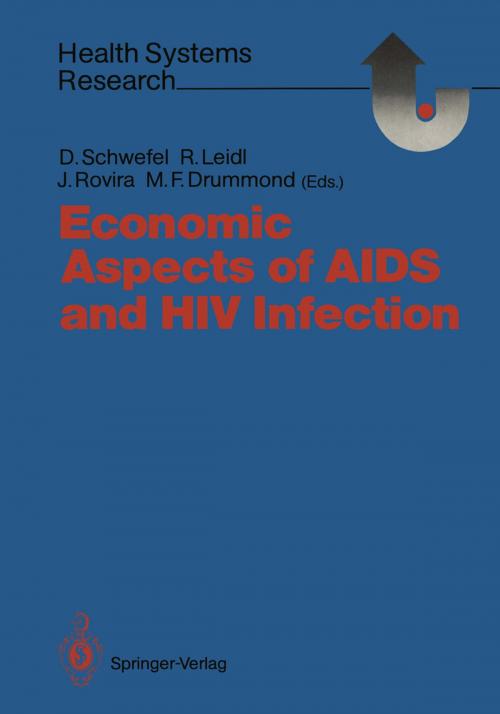Economic Aspects of AIDS and HIV Infection
Nonfiction, Health & Well Being, Medical, Specialties, Preventive Medicine, Ailments & Diseases, Infectious Diseases, General| Author: | ISBN: | 9783642840890 | |
| Publisher: | Springer Berlin Heidelberg | Publication: | December 6, 2012 |
| Imprint: | Springer | Language: | English |
| Author: | |
| ISBN: | 9783642840890 |
| Publisher: | Springer Berlin Heidelberg |
| Publication: | December 6, 2012 |
| Imprint: | Springer |
| Language: | English |
From the early days of its recognized occurrence, AIDS has been per ceived as posing tremendous threats, burdens and challenges to human beings. Individuals, societies and, in a global point of view, mankind are affected by the effects of the HN infection, the nature and extent of which is still unclear in many ways. In the beginning only biomedical and epidemiological analyses of the problem were the top research priori ties, the former laden with great hopes that it may soon be possible to stop the spread of the disease and to overcome its physical impact. Yet it soon became clear that AIDS would be something to be reckoned and coped with on a long-term basis, making a thorough investigation of its impact absolutely mandatory. AIDS has serious economic consequences. Taken seriously, they can not be confined to predictions of costs intended to support the AIDS issue in the struggle for resources. Besides cost calculations - a method ologically tricky and wide-ranging topic in itself -and their application to cost-effectiveness and other analyses, economic issues include identify ing and assessing patterns of care, analyzing problems of financing, exploring impacts on markets other than health care, and modelling scenarios for future developments and strategies. At present, the eco nomic aspects of AIDS still constitute a very recent topic in European health economics and health systems research. Many projects are just about to start, and there must be a better exchange of information between research groups.
From the early days of its recognized occurrence, AIDS has been per ceived as posing tremendous threats, burdens and challenges to human beings. Individuals, societies and, in a global point of view, mankind are affected by the effects of the HN infection, the nature and extent of which is still unclear in many ways. In the beginning only biomedical and epidemiological analyses of the problem were the top research priori ties, the former laden with great hopes that it may soon be possible to stop the spread of the disease and to overcome its physical impact. Yet it soon became clear that AIDS would be something to be reckoned and coped with on a long-term basis, making a thorough investigation of its impact absolutely mandatory. AIDS has serious economic consequences. Taken seriously, they can not be confined to predictions of costs intended to support the AIDS issue in the struggle for resources. Besides cost calculations - a method ologically tricky and wide-ranging topic in itself -and their application to cost-effectiveness and other analyses, economic issues include identify ing and assessing patterns of care, analyzing problems of financing, exploring impacts on markets other than health care, and modelling scenarios for future developments and strategies. At present, the eco nomic aspects of AIDS still constitute a very recent topic in European health economics and health systems research. Many projects are just about to start, and there must be a better exchange of information between research groups.















